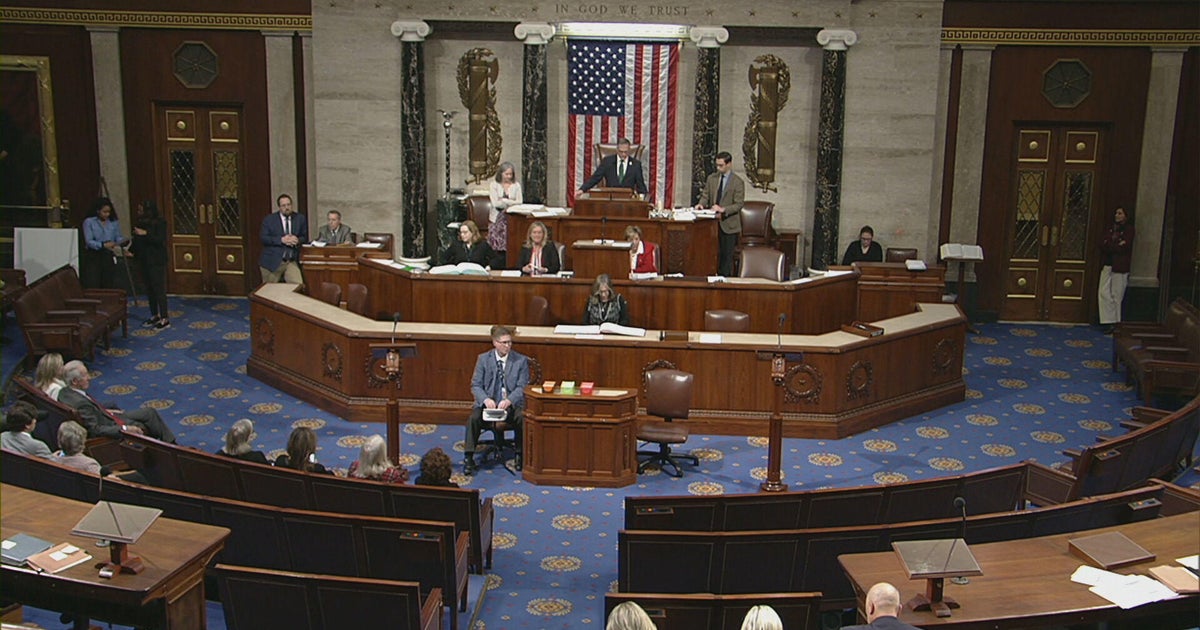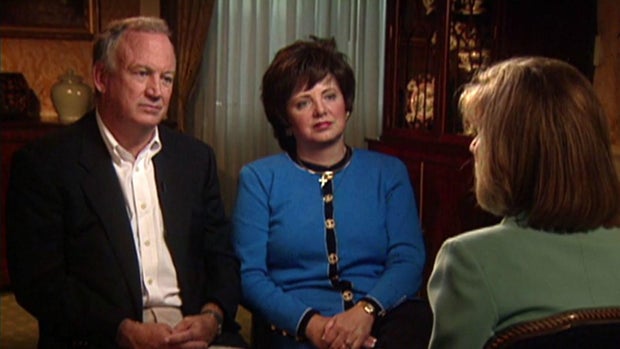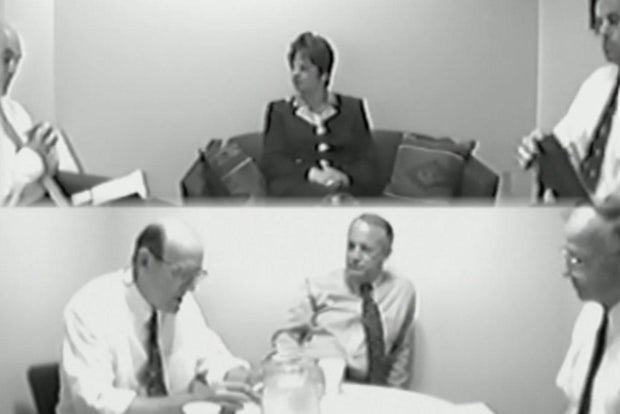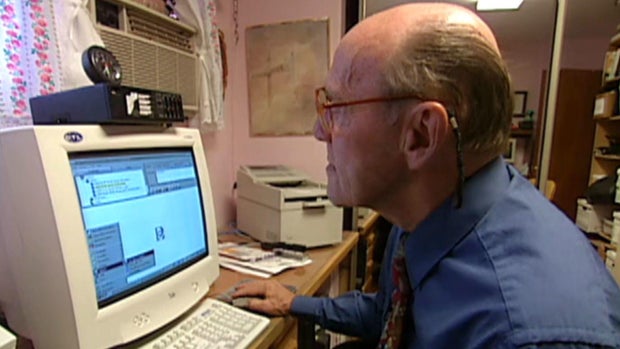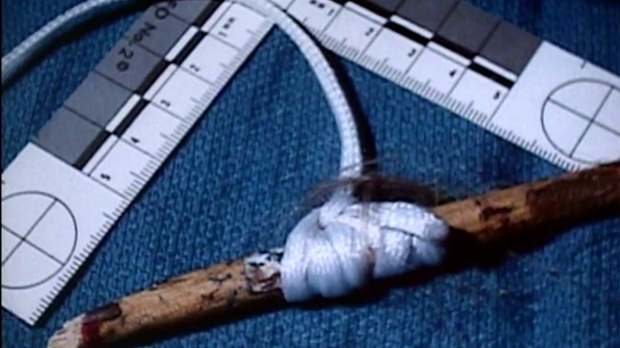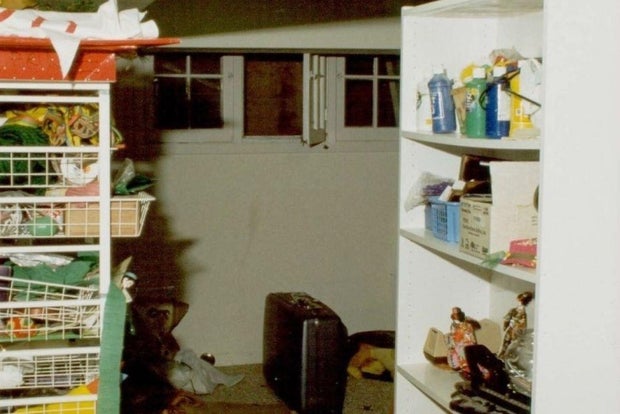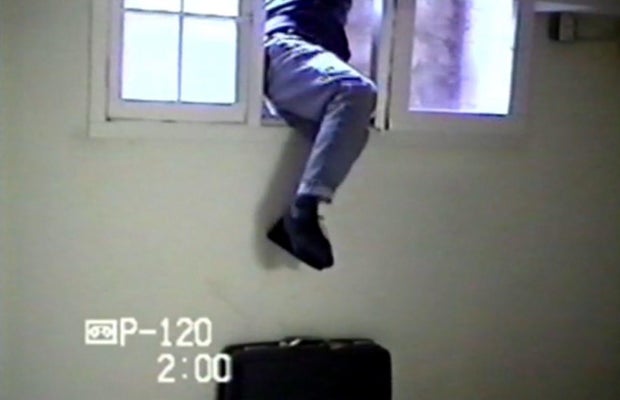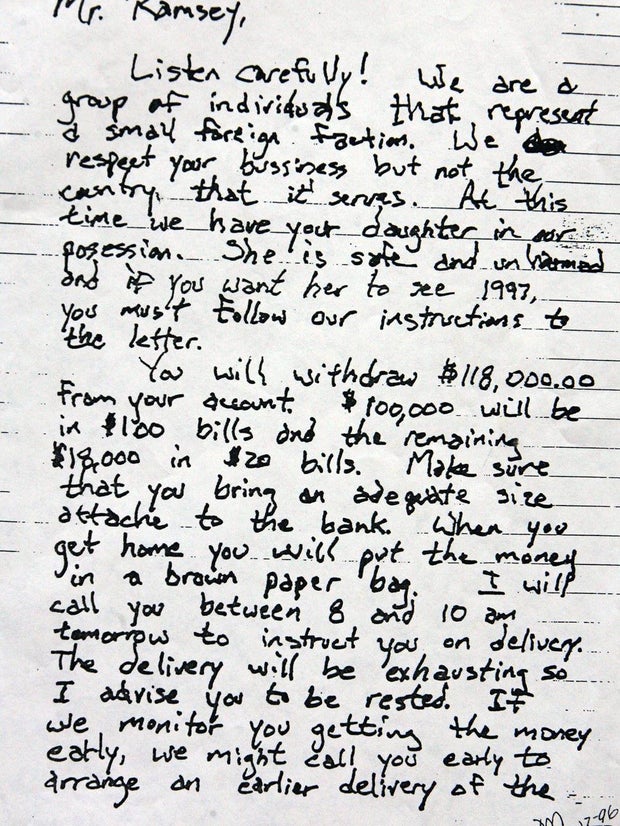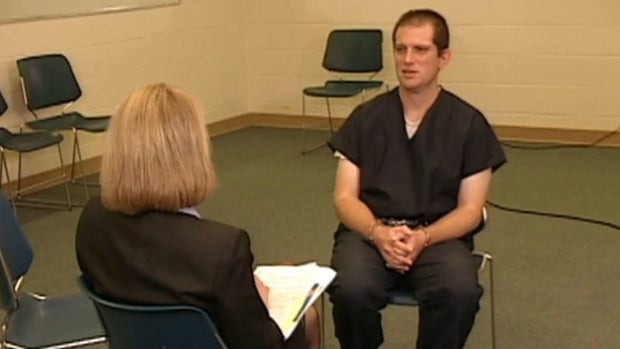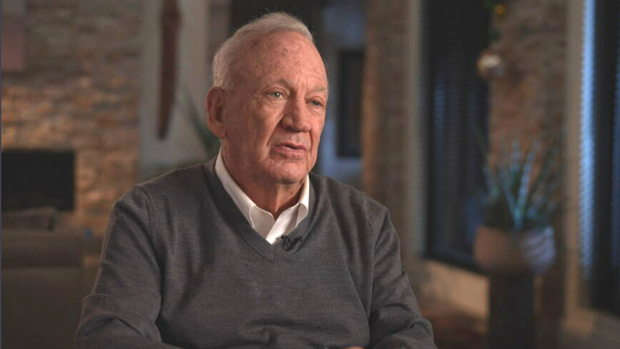CBS News
DeSantis, Haley, Christie and Ramaswamy in 4th Republican debate tonight

Watch CBS News
Be the first to know
Get browser notifications for breaking news, live events, and exclusive reporting.
CBS News
12/21: CBS Weekend News – CBS News

Watch CBS News
Be the first to know
Get browser notifications for breaking news, live events, and exclusive reporting.
CBS News
Kari Lake says she has no intention of turning Voice of America into “Trump TV”

Kari Lake said it’s not her intention to turn the government-funded news outlet Voice of America into “MAGA TV,” but that she wants to see a return of politically neutral journalism.
“I’m sure they’re doing some great stuff already. I’ve been looking a little bit here and there,” Lake said in an interview with CBS News Saturday. “I’m not there to make it Trump TV and MAGA TV. That’s not what this is about. That’s not what Voice of America is.”
Lake, a former broadcast journalist who unsuccessfully ran for governor and for a U.S. Senate seat in Arizona, is President-elect Donald Trump’s selection to head the international broadcaster.
VOA, which is part of the U.S. Agency for Global Media, broadcasts news internationally in 49 languages on radio, television and online to an audience of an estimated 354 million people per week, according to its website. It is run by an independent federal agency.
Lake on Saturday was sharply critical of non-conservative media outlets during remarks on stage at AmericaFest, a political gathering in Phoenix hosted by the far-right group Turning Point USA, saying “the fake news — the mainstream media — has just become obsolete.”
“They’re good for one thing,” she told the crowd. “They’re kind of like a barometer. If you see the fake news attacking someone, what you should do is say: I’ve got to support that person.”
In an interview later Saturday, she told CBS News she’d like to ensure VOA staff have the resources to “be the incredible journalists that they’re meant to be.”
Asked about her plans for changes to the newsroom, Lake said: “Well, I need to get in there and see what’s going on.” She then indicated she wants to expand its coverage.
“We’re talking to the world through Voice of America,” she said. “And I want to actually put more coverage out there, more product out there, if you will, more broadcasting, and make sure that they’re doing really quality, top-notch broadcasting and focus on great journalism, asking questions, and making sure that the journalists know that they’re independent journalists.”
Lake responded to concerns by some that she might politicize the news organization by saying she doesn’t care if the reporters are Democrats or Republicans, but whether they can set aside their opinions.
“I’ve never met anybody – they can say they’re neutral, but I’ve never really met anybody that has not formed beliefs,” Lake said. “It’s natural. It’s normal. Can you as a journalist check this while you’re covering the news? To put out a fair and accurate assessment. And so that’s what I’m going to be pushing for.”
Lake disclosed that she thinks people will realize she’s not the person the “corporate media” has described.
“Sometimes I feel like I have to go, when I meet people, to prove I don’t have horns coming out of my head, because the corporate mainstream media has done such a dishonest number on me,” she said. “And that’s one thing that I can relate to a lot with President Trump. We’ve had just the worst stuff said about us.”
Lake also acknowledged that Trump can’t unilaterally appoint her to this position — that decision lies with a bipartisan board that would have to remove the current director and approve a new one.
VOA reported last week that its current director, Mike Abramowitz, said in an email to staff that he welcomed “a smooth transition of power.”
CBS News
Who killed JonBenét Ramsey? Murdered girl’s father believes DNA could reveal killer

She is forever frozen in time. JonBenét Ramsey — 6 years old, dressed for a beauty pageant. And we still don’t know who killed her.
The day after Christmas in 1996, JonBenét was reported missing with a rambling ransom note left at the scene. Several hours later, she was found dead in her own home – bludgeoned and strangled.
Polaris
It was a media sensation. Suspicion fell on her parents, John and Patsy Ramsey. The couple was never charged, but early on there was a police theory that Patsy Ramsey may have killed her daughter in a fit of rage over bedwetting and then covered it up.
Now in his 80s, John Ramsey is still trying to clear his and Patsy’s names.
“Finding the killer … isn’t gonna change my life at this point, but it will change the lives of my children and my grandchildren. This cloud needs to be removed from our family’s head and this chapter closed for their benefit, so there is an answer,” he tells “48 Hours” correspondent Erin Moriarty in a November interview.
There’s more from that interview to come. But first, a time capsule — a look back at how “48 Hours” covered the story in a broadcast which originally aired on Oct. 4, 2002.
2002: A LOOK BACK AT THE JONBENÉT RAMSEY CASE
Originally aired on Oct. 4, 2002
John Ramsey: She was the spark plug of our family because of this zest that she had. She just kept things alive and hopping. … It’s not the same without her.
Patsy Ramsey: Why is it so hard for people to understand that we loved this child with everything in our being? We would never touch a hair on the head of one of our children.
Patsy Ramsey: I mean, it just is inconceivable to me.
Their faces are instantly recognizable, but John and Patsy Ramsey are famous in a way no one would want. Although they’ve never been publicly called suspects or charged with the 1996 death of their daughter, JonBenét, they are resigned to a painful reality.
CBS News
John Ramsey: We could find the killer tomorrow, he could be arrested, convicted and — and, you know, jailed, and there’d still be — 20 percent of the population would think that we had something to do with it.
Erin Moriarty: Did your daughter have a bed-wetting incident that night? Did you get up, did you get angry and did you hurt her?
Patsy Ramsey: No, I did not.
Erin Moriarty: What is your reaction when you know many people think that’s what you did?
Patsy Ramsey: They are wrong. I don’t know what else to say. How else do you say “no” except “no”? “No” means “no.”
Over the last several months, we have spent a great deal of time with the Ramseys — these favorite villains of the tabloids and have seen them in a way few others have.
On this day just this past summer, John and Patsy Ramsey are moving.
John Ramsey: Life has never been the same. And it has basically ruined us financially and emotionally and everything else. So we’re scaling back.
They are selling their million-dollar home in Atlanta and moving to a smaller townhouse just down the road. John Ramsey, once the head of a billion-dollar software company, hasn’t worked for four years. While Patsy has been quite literally fighting for her life.
In a rare, unguarded moment, without her makeup, without her wig, without even her eyebrows drawn in — you can see the damage left by the return of her cancer.
Patsy Ramsey: I thought I would paint during my cancer treatment, but I was just so sick, I couldn’t.
Erin Moriarty: How did you find out?
Patsy Ramsey: I was back in February for my annual checkup.
Nine years ago Patsy learned she had stage IV ovarian cancer. She made what she hoped was a full recovery but earlier this year she again went through debilitating chemotherapy.
Erin Moriarty: You lost your hair.
Patsy Ramsey: Yes. It’s growing back. My eyebrows are growing back. It all comes out, but you know what? That’s very little thing to worry about.
Splash News
In fact, Patsy Ramsey has much bigger concerns. Almost from the moment the body of their 6-year-old daughter JonBenét was discovered, Boulder police believed John and Patsy killed their daughter and then staged a kidnapping complete with a rambling two-and-a-half-page ransom note to cover it up.
John Ramsey: They’ve never investigated this case. Other than to investigate the family, they have never investigated this case.
Police say they haven’t ruled out other theories. To this day, the Ramseys remain the prime suspects, as you will see in videotape obtained exclusively by “48 Hours.”
LIN WOOD | Ramseys attorney (at deposition): You have not classified any individual as a suspect?
CHIEF MARK BECKNER | Boulder Police Department: Publicly, correct.
While testifying under oath in a civil case in November 2001, Boulder Police Chief Mark Beckner admitted what he had never before said publicly.
CHIEF BECKNER: Internally, John and Patsy are considered suspects.
LIN WOOD: Both of them —
CHIEF BECKNER: Yes.
LIN WOOD: — are considered to have probably been involved in the death of their daughter?
CHIEF BECKNER: Probability, yes.
Erin Moriarty: Why do you think you remain probably the prime suspect in the eyes of the Boulder Police?
Patsy Ramsey: I asked Mark Beckner that.
John Ramsey: That’s right.
Patsy Ramsey: I came closer to him in the face than I am to you, Erin, and I said, “Tell me what it is that makes you think I killed my beautiful, precious child.” And he said, “Well—well, it’s just a lot of little things.” I think he really doesn’t know.
But because police didn’t have enough evidence, sources within the investigation tell “48 Hours” the police tried to psychologically break the Ramseys, hoping one or both would confess.
John Ramsey: That it was a strategy that was put in place to bring immense pressure on us to break us.
That strategy by some in the department, claims John Ramsey, included a relentless campaign of leaks, fed mostly to the nation’s tabloids, that had a devastating effect on public opinion.
Lin Wood: They convinced the public of guilt.
Lin Wood is John and Patsy Ramsey’s attorney.
Lin Wood: You couldn’t go to buy groceries for your family without passing headlines that said that John Ramsey had — had molested his first daughter. Absolutely false.
Lin Wood: Headlines that John and Patsy Ramsey were pornographers. Absolutely false.
Headlines that they were devil worshipers. Absolutely false.
The Ramseys believe that the Boulder Police still to this day continue to ignore evidence pointing to other suspects.
John Ramsey: It’s frustrating, it’s disappointing. It makes me angry.
Erin Moriarty: You say it makes you angry, but you don’t seem angry. Do — do you think that s — also hurt you in the eyes of the public?
John Ramsey: Well, we’re not soap opera actors. I mean, I — I suppose if I was an actor, I could act really angry. But I’m not. That’s who I am is what you see, and I’m angry. This is angry for me.
Angry because John Ramsey says a killer or killers remain free.
John Ramsey: What I do know is that we didn’t kill our daughter so let’s look at the rest of the picture guys.
THE 1998 POLICE INTERROGATION OF JOHN AND PATSY RAMSEY
Originally aired on Oct. 4, 2002
On June 23, 1998 in Broomfield, Colorado — a year-and-a-half after JonBenét was murdered, John and Patsy Ramsey, sitting in separate rooms at the same time, were questioned by Boulder authorities in a Colorado police station. These tapes have never before been seen publicly.
Questioning John is Lou Smit, a homicide detective then working for the Boulder D.A.’s office.
DET. LOU SMIT: (from police interrogation tapes) There’s been a lot of speculation by a lot of people that maybe you didn’t know anything about the murder, but maybe Patsy did.
JOHN RAMSEY: No, that’s preposterous. I mean, Patsy loves both her children dearly. But frankly she and JonBenét were extremely close.
Detective Tom Haney questioned Patsy, who at the time was taking medication for both anxiety and depression.
DET. HANEY (from police interrogation tapes): If I told you right now that we have trace evidence that appears to link you to the death of JonBenét, what would you tell me?
PATSY RAMSEY: That is totally impossible. Go retest.
DET. HANEY: How is it impossible?
PATSY RAMSEY: I did not kill my child. I didn’t have anything to do with it. And…
DET. HANEY: And — and I’m not talking, you know, somebody’s guess or some rumor or some story. I’m talking …
PATSY RAMSEY: I don’t care what you’re talking about.
DET. HANEY: I’m talking about scientific evidence.
PATSY RAMSEY: I’m — I don’t give a flying flip how scientific it is. Go back to the damn drawing board. I didn’t do it. John Ramsey didn’t do it. And we didn’t have a clue of anybody who did do it. So we all got to start working together from here — this day forward to try to find out who the hell did it.
“48 Hours Investigates” has acquired the tapes — hours upon hours of footage that take you inside the investigation. While the tapes show how strongly prosecutors believed John and Patsy Ramsey were responsible for the death of their daughter, frankly, there isn’t a lot of physical evidence that links them. So questioners looked for inconsistencies and focused on minute details from the crime scene.
DET. SMIT: What have you heard about pineapple?
JOHN RAMSEY: Well, we were asked, did JonBenét eat pineapple and — and — because, apparently, it was found in her system. I think part of the question was, too, “When did she eat it? When she got home?” You know? I’m sure she didn’t because she was absolutely sound asleep.
The Ramseys told police that JonBenét had gone straight to bed that night and had not eaten at home. But autopsy results did find undigested pineapple in JonBenét’s stomach. And police discovered fingerprints on a bowl of pineapple left in the family’s dining room on the morning of the murder.
PATSY RAMSEY: I didn’t put the bowl there, OK? I did not put the bowl there.
DET. HANEY: OK.
PATSY RAMSEY: I would not do this set-up like this. All right.
DET. HANEY: But, OK, let’s go back to your line of reasoning here. If they weren’t — now talk
to me. Look at me.
PATSY RAMSEY: OK. All right.
DET. HANEY: If they’re not yours and they’re not John’s, then they would be somebody else’s.
PATSY RAMSEY: Right.
DET. HANEY: Now I’m telling you they’re not somebody else’s. Those prints belong to one of the two of you.
PATSY RAMSEY: They do? You’re sure? Well, I don’t know. I did not put that there.
The fingerprints on the bowl are Patsy’s, according to police, suggesting that she’s the one who gave the fruit to her daughter. But if Patsy did give it to JonBenét, and is lying about it, then investigators wondered — could she be lying about everything?
DET. HANEY: You know, sometimes the simplest, most obscure little thing —
PATSY RAMSEY: I don’t know.
DET. HANEY: — could be so significant.
PATSY RAMSEY: Right. I did not feed JonBenét pineapple, OK? So I don’t know how it got in her stomach and I don’t know where this bowl of pineapple came from. I can’t recall putting that there.
After three days of questioning, the interrogation in 1998 ended. And even though the Ramseys were not indicted, Boulder authorities continued to believe they were guilty. So in August of 2000, prosecutors flew to Atlanta, where the Ramseys were living, asking to see and hear new evidence. “48 Hours” has also acquired those tapes.
MICHAEL KANE (2000 interview with prosecutors): If ever there were going to be an intruder on trial, the defense is going to be that you did it. Do you remember that?
JOHN RAMSEY: I remember that. But I’m not here to prove my innocence. I’m here to find the killer of my daughter.
With John, prosecutors asked questions mostly about leads he had uncovered on other suspects. But with Patsy, interrogators were more accusatory, suggesting they had new evidence — clothing fibers that would tie her directly to the murder.
BRUCE LEVIN | Boulder D.A.’s Office: You were shown … in photographs … wearing a red coat.
PATSY RAMSEY: It’s kind of a black and red and gray fleece.
BRUCE LEVIN: More like a blazer?
PATSY RAMSEY: Like a pea coat.
Bruce Levin from the Boulder District Attorney’s Office led the questioning.
BRUCE LEVIN: Mrs. Ramsey, I have scientific evidence from forensic scientists that say that there’s fibers in the paint tray that match your red jacket.
The paint tray is significant because a brush from it, along with some rope, was used to strangle and sexually abuse JonBenét.
BRUCE LEVIN: And we believe that fibers from her jacket were found in the paint tray, were found tied into the ligature found on JonBenét’s neck, were found on the blanket that she’s wrapped in, were found in the duct tape that’s found on her mouth. … I have no evidence from any scientist to suggest that those fibers are from any source other than your red jacket.
LIN WOOD (Ramseys’ attorney): Well, again, that’s — come on. I mean, they — what other sources did they test?
Patsy’s attorney, Lin Wood, asked prosecutors to produce the evidence. When they wouldn’t, he refused to let Patsy go on the record. But she did go on the record with us.
Erin Moriarty: What do you think about these fibers?
Patsy Ramsey: After John discovering the body and she was brought to the living room, when I laid eyes on her, I knelt down and hugged her … But I was — had my whole body on her body. My sweater fibers, or whatever I had on that morning, are going to transfer to her clothing.
In all the questioning, the prosecutors focused more on Patsy than John, following their belief that she was the killer.
DET. HANEY: JonBenét got up, and somebody in that house legally, lawfully, in that house, one of the three of you, also happens to be up, or gets up, because she makes noise. And there is some discussion or something happens, there’s an accident, somebody …
PATSY RAMSEY: You’re going down the wrong path, buddy.
DET. HANEY: OK. Somebody accidentally or somebody gets upset over bed-wetting, that’s one of the things that’s been proposed, OK?
PATSY RAMSEY: Didn’t happen. If she got up in the night and ran into somebody, it was somebody there that wasn’t supposed to be there. I don’t know what transpired after that, whether it was an accident, intentional, premeditated or whatnot …
DET. HANEY: OK.
PATSY RAMSEY: … it was not one of her three family members that were also in that house. Period. End of statement.
These tapes don’t always show the Ramseys at their best. But remarkably, it was the Ramseys who made them available, saying they want all the information on this case out in the open. As for the Boulder Police and prosecutors, they denied repeated requests from “48 Hours” to discuss these tapes or any of the issues we’re raising tonight. Their only comment on the Ramsey murder investigation is “no comment.”
PATSY RAMSEY: (from police interrogation tapes) I mean, I appreciate being here. I appreciate it. It’s very hard to be here. But it is a damn sight harder to be sitting at home in Atlanta, Georgia, wondering every second of every day what you guys are doing out here. You know. Have you found anything? Are we any closer? Is the guy out here watching my house? You know, is my son safe? My life has been hell from that day forward. And I want nothing more than to find out who is responsible for this.
RULING OUT THE RAMSEYS AS SUSPECTS IN JONBENÉT’S MURDER
Originally aired on Oct. 4, 2002
One hundred miles away from where JonBenét Ramsey was murdered, in a modest home in Colorado Springs, 67-year-old Lou Smit works every day alone trying to find her killer.
Det. Smit: I keep a picture of her in my wallet.
Erin Moriarty: You have JonBenét in your wallet?
Det. Smit: Sure. I keep it all the time.
This is the same Lou Smit you saw interrogating John Ramsey back in 1998.
CBS News
A veteran detective with such an impressive record for solving homicides that the Boulder district attorney hired him on the Ramsey murder case.
DET. SMIT: (from police interrogation tapes) I have to stick up for the Boulder Police Department a little bit.
Erin Moriarty: And when you started, who did you believe killed JonBenét Ramsey?
Det. Smit: My gut feeling was her parents did it.
But as Smit followed the evidence and questioned the Ramseys, the more he became convinced that the Boulder Police were focusing on the wrong suspects.
Det. Smit: John Ramsey came through very, very sincere.
JOHN RAMSEY: (from police interrogation tapes) So when I first found her, I was, like, “Thank God, I found her.”
Det. Smit: When I left that interview, there was no doubt in my mind that he had nothing to do with the death of his daughter.
Smit quit the investigation in disgust.
Det. Smit: They’d hired me as a detective to take a look at this case. They may not like what I say, but I’m gonna say it. I don’t think the Ramseys did it. And I think they ought to start looking for the people that did.
Erin Moriarty: How would you describe Lou Smit?
Patsy Ramsey: He’s my hope in finding out who killed my daughter.
Det. Smit: As a detective, I’m looking for clues.
What is it that convinces Smit that someone other than the Ramseys killed their 6-year-old daughter? First and foremost, the brutality of the crime. Nearly every medical expert who has seen the autopsy report agrees on one thing: this was not an accidental death. JonBenét Ramsey was cruelly and deliberately murdered.
JonBenét was strangled not once, says Smit, but twice, with an intricately made device known as a garrote that had to have been made by the killer during the murder.
CBS News
Erin Moriarty: What do we see here?
Det. Smit: You see hair, right inside the windings of that cord; that’s JonBenét’s hair.
It’s a device, says Smit, that was not left there for show. Whoever killed JonBenét used the garrote to strangle her. Smit believes she was fighting for her life. There were marks that look a lot like scratches on her neck.
Det. Smit: She did have her own DNA under her fingernails. I’m pretty sure that’s the scratch to get that off. I think she was struggling then
At some point the child was then hit over the head with such force it crushed her skull, but her nightmare wasn’t over. Shortly before she died, investigators believe she was sexually assaulted with a piece of the paintbrush that was used to make the garrote.
Det. Smit: There’s no motive for the parent to do that.
The evidence, says Smit, simply does not support the popular theory that the Ramseys struck their daughter and then tried to cover it up.
Det. Smit: It’s not a mother waking up in the middle of the night saying, “Oops, I think I hurt my child. Oops, I got to bring her downstairs and fashion one of these things. And then I’m going to put it around her neck and I’m going to tighten it a couple times while she’s struggling.” Now, if you want to believe that, go ahead. I can’t say this on the air but that’s bull****.
But what about those fibers from Patsy Ramsey’s jacket that police say were in the paint tray and on the sticky side of duct tape covering JonBenét’s mouth?
Erin Moriarty: Is the fact that there were fibers that were consistent with Patsy Ramsey’s jacket incriminating?
Det. Smit: Sure.
Erin Moriarty: But does that shake your faith that the Ramseys were not involved?
Det. Smit: No … You just can’t rely on fiber evidence. Because fibers could come off with a jacket or something similar to the jacket.
What’s more, says Smit, there were also dozens of unidentified fibers that didn’t come from the Ramseys. And Smit is unaware of a single case where a parent used a garrote to kill a child.
Det. Smit: This is one of the best clues left behind by the killer. This shows what’s going on in his mind. This is a sexual device. I’m looking for a pedophile that’s a sexual sadist. That’s what Lou Smit’s looking for.
Smit’s not the only one.
Colorado private detective Ollie Gray and his partner, John Sangustin, were hired by the Ramseys in 1999.
Even when the Ramseys ran out of money, Gray and Sangustin stayed on the job.
Ollie Gray: We’d probably do something on it, two or three times a week.
Erin Moriarty: Even though you’re not getting paid?
Ollie Gray: Sure.
John Sangustin: Yeah.
They became convinced of the Ramseys’ innocence after seeing this lab report.
Ollie Gray: I acquired a document that you see right here that names John and Patsy Ramsey as suspects was submitted for analysis reference DNA.
Just days after JonBenét was murdered, her parents were asked to give DNA samples to the Boulder Police.
Erin Moriarty: The two of you have given DNA evidence to the police?
Patsy Ramsey: Absolutely.
John Ramsey: Absolutely. Blood, hair, DNA, everything — we’ve given them everything they’ve asked for.
Their DNA was compared to foreign DNA found under their daughter’s fingernails and in her panties, which may have been left by the killer.
Erin Moriarty: Does any of that DNA match anyone in the Ramsey family?
Ollie Gray: No. This analysis eliminates the Ramseys.
Patsy Ramsey: If our DNA matched anything significant, they would have arrested us in a New York minute. And don’t ever think they wouldn’t have.
If not the Ramseys, then who killed JonBenét?
THE INTRUDER THEORY
Originally aired on Oct. 4, 2002
Retired homicide detective Lou Smit was still working on the official investigation when he concluded that a stranger came into the Ramsey home and killed their 6-year-old daughter.
Det. Smit: This is why I believe that the killer got in. … He opened the grate, he went in.
CBS News
Det. Smit: There’s three windows there. The center one was the one that was open. Take a look real closely at the window on the left … What you’re going to see is leaves and debris pressed right up against the window … Now let’s take a look at the one again in the center — no leaves or debris …
Erin Moriarty: Which says?
Det. Smit: That window was opened. Directly below that opened window you have a suitcase…. … Directly around that suitcase you have leaves and debris from that window well around that suitcase … Also see — if you look very closely, you’re going to see a mark that goes right down the wall…
A scuff mark that Smit believes was left by someone either climbing in or climbing out.
Erin Moriarty: You can fit through that window?
Det. Smit: Oh, without any problem.
Det. Smit: It is much easier to go out that window if you stand on something … You put the suitcase in front, you step on the suitcase and you’re right out into the window well. Lift the grate, you’re gone. It’s that easy.
But why would an intruder who intended to kill JonBenét leave the bizarre two-and-a-half-page ransom note written with paper and a pen belonging to Patsy? Boulder police have always believed that Patsy used it to make the killing look like a kidnapping.
Erin Moriarty: But if someone had been targeting JonBenét Ramsey, wouldn’t he at least bring the — the paper and the pencil to write this ransom note? I mean …
AP/Boulder Police Department
Det. Smit: Well, if you want to look at it from a sophisticated criminal’s mind, they probably wouldn’t bring it in. Why would you bring in something that could be traced back to your house where you have actual — the pen and the ink and you have the — the paper right there that it was written on?
Erin Moriarty: But you can’t count on finding that in the house.
Det. Smit: Can’t count on it; most houses have that.
Erin Moriarty: No expert could eliminate Patsy Ramsey as the writer of the ransom note … That’s damning, isn’t it?
Det. Smit: No, not at all … You always are going to have similarities in handwriting. To sit down and write a note like that with all of those details in there after you brutally killed your daughter, you’d never done that before. Come on, give me a break.
But more than any other evidence, Smit believes small marks left on JonBenét’s face and back prove an intruder killed her.
Det. Smit: The killer had a stun gun. I am sure the killer had a stun gun.
A stun gun, an electrical weapon used to incapacitate the little girl in order to move her to the basement. Smit believes only an intruder would need to use one.
Det. Smit: There’s no reason at all for the parents to have used a stun gun to help stage the murder of their daughter.
Erin Moriarty: Was there any indication that — that the Ramseys had ever owned a stun gun?
Det. Smit: There is nothing to indicate the Ramseys ever owned a stun gun.
What’s significant about these injuries, says Smit, is that those on the child’s face and those on her back appear to be an equal distance apart, much like the prongs of this a stun gun.
Det. Smit: They’re approximately 3.5 centimeters. And they’re approximately 3.5 centimeters apart.
Dr. Michael Doberson, the coroner for neighboring Arapahoe County, also believes the marks on JonBenét were left by a stun gun.
Dr. Doberson: And if I push this … you can see the electricity arching.
Dr. Doberson: If it’s not a stun gun, I’d like to know what it is.
Three other pathologists agreed, but the Boulder Police are relying instead on this man’s opinion.
Dr. Werner Spitz: They don’t look …
Erin Moriarty: How sure are you that it’s not a stun gun on her back?
Dr. Spitz: Well, I’m 100% sure, because stun gun injuries don’t look that way.
Dr. Werner Spitz, a nationally known forensic pathologist who has worked on major cases including the assassination of John F. Kennedy.
Dr. Spitz: A stun gun injury is a — is an electrical burn, is a burn, essentially, and these don’t look like burns.
Unfortunately, with only photographs to go by, no expert, not Spitz nor Doberson, can be 100% sure.
Erin Moriarty: Wouldn’t that have been the best way to know or come the closest to knowing is if you could have exhumed the body and line up a stun gun and see if it matches those injuries?
Det. Smit: Sure. I believe that — that would have probably been the most accurate way to do it.
Smit admits that in the months following JonBenét’s death, investigators considered going to court to have her body exhumed but decided against it.
John Ramsey: We had buried our child. She was at peace. That was just an – a — an abhorrent thought.
Erin Moriarty: But, John, that might have been the one way to know for sure. That could have resolved the whole issue. Because if a stun gun was used, it was not the parents.
John Ramsey: No, we — certainly. And we’ve got people that have told us that know what they’re doing that with 95% medical certainty that a stun gun was used. No question.
Erin Moriarty: But you would have known with 100% certainty if you had exhumed the body, as tough as that would have been.
John Ramsey: This is my child you’re talking about. It’s not a body. It’s different.
Still, Smit believes a stun gun is the key to JonBenét’s murder, and he’s searching for a killer or killers who own one.
Det. Smit: The person who did this, if we’re right, he’s still out there.
A PERSON OF INTEREST?
Originally aired on Oct. 4, 2002
On the cold December night that marked the one-year anniversary of JonBenét’s murder, dozens of mourners showed up for a candlelight vigil outside the Ramsey home. One man in particular caught investigator Lou Smit’s eye.
Det. Smit: Many times criminals do return to the scene, and that was on the anniversary. That puts him right there at the Ramsey house a year later.
He’s Gary Oliva, a 38-year-old convicted sex offender from Oregon who lives in Boulder.
Det. Smit: He definitely is a sex offender for assaulting another 7-year-old girl in Oregon. He spent time in prison for that.
Smit is convinced that a pedophile came into the Ramsey home and killed their daughter.
Det. Smit: On my computer I’ve probably got 25 good leads, and I probably have another 50 pages of other leads to follow.
Among the files he’s keeping on sex offenders in Boulder, Oliva’s name stands out. In 1991, the year after he sexually assaulted the little girl, police reports say he tried to strangle his mother with a telephone cord. And in December 1996, Oliva may have been only a few houses away from JonBenét’s bedroom window.
Ollie Gray: This is the alley that runs behind the Ramseys’ home. It leads into the backyard, to the garage area.
John Sangustin: It wasn’t uncommon for JonBenét and Burke to ride their bicycles around the alleyway.
John Sangustin and Ollie Gray, the Ramseys’ private investigators, say Oliva frequented buildings (in the alley) owned by a local church.
Ollie Gray: You have a lot of transient people come here for food and also to pick up their mail.
Erin Moriarty: But why is this relevant?
Ollie Gray: The Ramsey home is — What? — 10 houses?
Erin Moriarty: Right up this alley.
Ollie Gray: Right up this alley.
What did the Boulder police do with this? Nothing. According to Smit, the police didn’t follow up on 95% of the more than 3,000 phone tips that came in. In Oliva’s case, they didn’t investigate him until nearly four years after JonBenét Ramsey’s death, when he was caught with drugs. And guess what else? A stun gun.
Erin Moriarty: Did you ever use that stun gun on a child?
Gary Oliva: No.
Oliva, who was wanted in Oregon for parole violations, turned himself in to the Boulder police two weeks ago.
CBS News
Erin Moriarty: Did you hurt or kill JonBenét Ramsey?
Gary Oliva: No. No, I didn’t …
Erin Moriarty: Didn’t you tell your friend that you were attracted to little girls?
Gary Oliva: I don’t think I want to answer that.
Erin Moriarty: OK. You were living in Boulder at the time JonBenét was killed.
Gary Oliva: Yeah.
Erin Moriarty: Just down the street.
Gary Oliva: Yeah.
He will admit to an obsession with JonBenét.
Gary Oliva: I believe that she came to me after she was killed and revealed herself to me.
As it turns out, we’re not the only ones interested in Oliva. A Boulder police officer showed up to take notes.
Alex Hunter | Former Boulder District Attorney: I would be concerned if any lead was not fully taken to ground.
Former Boulder district attorney, Alex Hunter, says police tried to follow up on pedophiles, but admits that early on the force was clearly overwhelmed.
Erin Moriarty: Didn’t your office have to tell police officers, “You’ve got to look at these other leads? You can’t just focus on the Ramseys.”
Alex Hunter: Well, it — it was said, probably not in quite that language, but yes.
Why didn’t authorities take a sex offender like Oliva more seriously? Just this week, Boulder police said Oliva is not a suspect. Sources say his DNA doesn’t match evidence at the scene.
John Ramsey: Nor does ours.
Erin Moriarty: What do you think of that?
Patsy Ramsey: I think it’s a double standard. Don’t you?
Erin Moriarty: Is it fair to say then that the state of the evidence right now, there just isn’t enough to convict the Ramseys beyond a reasonable doubt?
Alex Hunter: There isn’t enough to convict anybody beyond a reasonable doubt.
But Hunter believes this case someday can be solved, although he doesn’t think Smit is the man to do it.
Erin Moriarty: Do you feel that Lou Smit’s feelings for the Ramseys clouded his judgment?
Alex Hunter: I think a little bit.
Hunter believes Smit, a devout Christian, crossed a line. When working as a D.A. investigator, he prayed with the Ramseys.
Erin Moriarty: Do you think maybe you’ve gotten too close to the Ramseys?
Det. Smit: Well, let’s put it this way, I don’t think I did. If the Ramseys did this and I found out, I’d be the first one standing in line at the Boulder Police Department.
JonBenét Ramsey would have been 12 years old this year and in sixth grade. Instead, she’s buried in a Georgia cemetery, while her brutal killer or killers go free.
2024: JOHN RAMSEY STILL HAS HOPE
Remarkably, not much has changed since that 2002 program. The case is at a standstill. But with the passage of so much time comes the loss of some key figures. Most notably Patsy Ramsey, who died of cancer in 2006. She was 49. John Ramsey remarried five years later.
Erin Moriarty: I think back about Patsy. And I remember Patsy saying that your lives could not go on until the killer was found.
John Ramsey: Well —
Erin Moriarty: How much weight was that on Patsy before she died?
John Ramsey: Patsy was a very strong woman. She really was and a very kind person, a wonderful mother. She got pretty vilified of the media, which was horribly unfair. … I think hurt deeper than it showed.
Investigator Lou Smit worked on the case almost until the day he died in August 2010. His family continues to pursue leads.
Erin Moriarty: John, do you believe this case could be solved …?
John Ramsey: Yes, I do. If the police will take advantage of all the technology that’s available to ’em and that’s, uh, going to one or two of the world’s cutting-edge labs for DNA testing. … And I think if they do that and if we’re successful getting a sample in the right format and then do the genealogy research, I’m 80 percent confident it could be solved. … but you gotta do it.
In November 2024, the Boulder Police Department released a statement which said: “The assertion that there is viable evidence and leads we are not pursuing — to include DNA testing — is completely false.” The department said there is an ongoing investigation, and they are looking into the recommendations made by a recent Cold Case review team.
CHIEF STEPHEN REDFEARN | BOULDER POLICE DEPARTMENT: … we have thoroughly investigated multiple people identified as suspects throughout the years, and we continue to be open-minded about what occurred as we investigate the tips that come in to detectives.
CBS News
John Ramsey remains hopeful that these new efforts may finally reveal the killer — a killer he believes was already waiting in their house when the family came home from dinner that Christmas night.
John Ramsey: — we were casual with our security in our home in Boulder. We thought it was a safe place … and we got casual and — and complacent.
Erin Moriarty: When you look back, are there any things you wish you had done differently?
John Ramsey: Well … the little beauty pageants they participated in. … I wouldn’t have done that. You need to keep your children private. … it was conflict for me because Patsy just recovered from stage four ovarian cancer, was grateful to have some life ahead of her in remission. … She didn’t know how long, to spend with her children and to raise her children. … I think she tried to pack a lot of mother-daughter time in that period of time that she knew she had ahead of her.
Polaris
Erin Moriarty: Do you ever dream about JonBenét?
John Ramsey: Once in a while.
Erin Moriarty: Or wonder what she would’ve been like now?
John Ramsey: Well, I dream … I occasionally have dreams and they’re really wonderful dreams, but I don’t try to imagine what she would’ve been. … She’s — she was in my life for six years and was my little girl. And that’s how I remember her.
HAVE INFORMATION?
If you have information about the case, please call the Boulder Police Department at 303-441-1974 or email BouldersMostWanted@bouldercolorado.gov.



